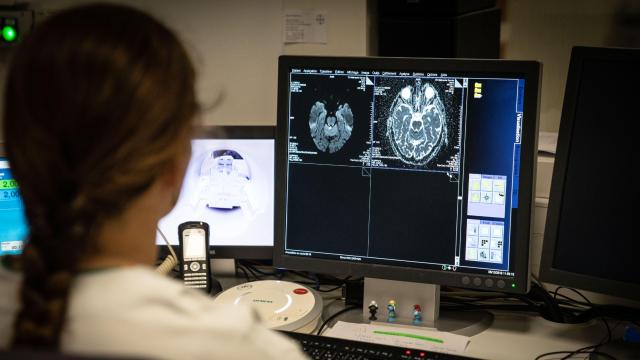What appeared to be an unusual cluster of neurological illness in New Brunswick, Canada is no longer being officially treated as such. Late late month, New Brunswick health officials concluded that these cases were likely misdiagnosed and actually caused by unrelated but known brain ailments, such as Alzheimer’s disease. However, some critics maintain that the cluster is genuine and have continued to call for more investigation.
In March 2021, health officials released a memo to doctors in the area, warning that they had been alerted to reports of people coming down with a dementia-like brain disorder that had no clear cause. In addition to memory loss, those affected commonly experienced symptoms like weight loss, trouble moving, and hallucinations. The initial investigation found no evidence of prion disease, rare ailments caused by rogue brain proteins that can sometimes be transmissible between people or across different species of animals, further adding to the mystery.
By the end of 2021, 48 people were officially recognised as likely cases in the cluster; nine would eventually die. But in January 2022, an anonymous whistleblower with the Vitalité Health Network, one of two health authorities in the province, stepped forward with explosive allegations.
The source and others told the Guardian that more cases with similar symptoms — as many as 150 people — had been unofficially documented by doctors, including cases of shared symptoms within a household, which could suggest a shared cause or risk factor. Some independent experts, as well as patients within and outside the officially recognised cluster and their families, said they were frustrated by the investigation, arguing that possibly important clues were being dismissed or outright ignored by officials. The investigation also seemed to sideline the neurologist who first found these cases, Alier Marrero. But some officials and other neurologists questioned whether a true cluster existed at all — and that’s the conclusion of the latest official report.
On February 24, the findings of an oversight committee appointed by the local government to look into the cluster were finally made public. The committee, led by neurologists across the province, only looked at the 48 official cases and concluded that there was no real connection between them. The findings also cast doubt on Marrero, though not by name, stating that it wasn’t clear whether the original neurologist who documented most of these cases had sought a second medical opinion before alerting authorities.
“The oversight committee has unanimously agreed that these 48 people should never have been identified as having a neurological syndrome of unknown cause, and that based on the evidence reviewed, no such syndrome exists,” said Jennifer Russell, chief medical officer of health for New Brunswick, at a conference announcing the findings, CBC reported. “But I stress again, this does not mean that these people aren’t seriously ill. It means they are ill with a known neurological condition.”
Marrero appears to have stood by his conclusions, with the Guardian reporting that he had sent a letter in mid-February to local and federal officials calling for more help to investigate the backlog of similar but unofficial cases that other doctors had referred to him. At the press conference, the committee disputed claims that they had been advised about cases within the same households, despite Marrero’s letter mentioning them. Both families and some outside observers were not pleased with the committee’s findings and overall investigation, according to the Guardian.
“It’s a sham. It’s an absolute public health sham,” Kat Lanteigne, executive director of Bloodwatch, a nonprofit organisation focused on establishing a public donor blood system in the country, told the Guardian last month. “They haven’t done any additional testing. They have not tested for neurotoxins. They did not run a control group for their epidemiological study. Their data is wholly insufficient.”
